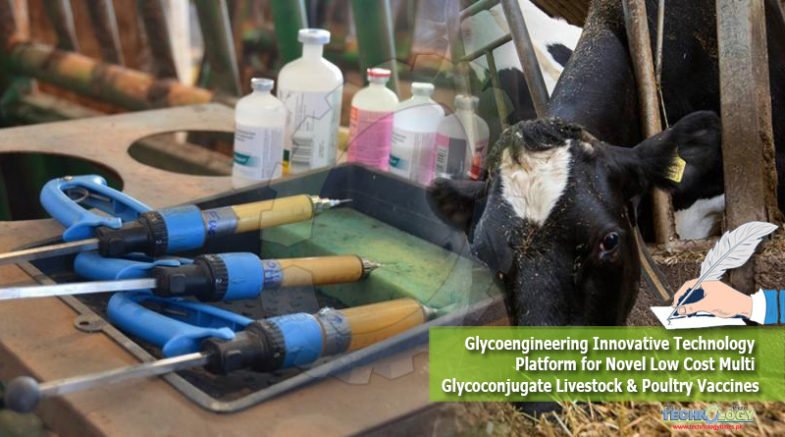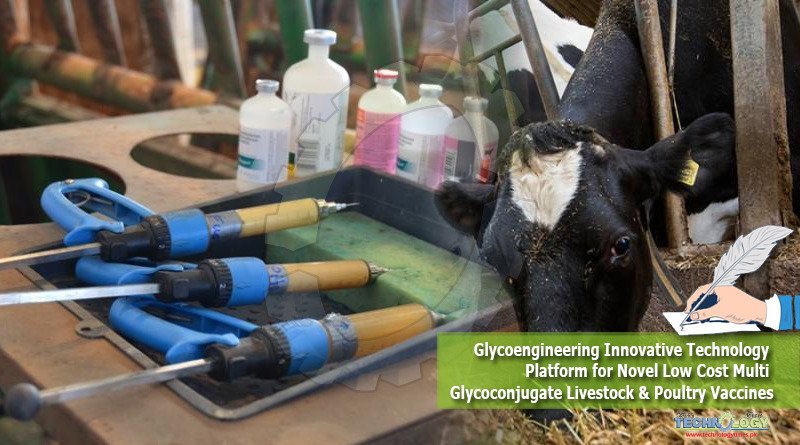By using clean technology such as Glycoengineering, Pakistan can revamp vaccine production that will improve demand and supply chain gaps of livestock sector

Global livestock & poultry industry, in particular smallholder livestock producers, including Pakistan’s encounter severe economic losses for a variety of reasons. Pakistan’s economy is primarily based on agriculture sector with livestock being largest contributor to the country’s economy (11.9% to the GDP) and nearly 8 million families (30-50 million people) are directly involved with livestock as major income source for food security.
Pakistan’s livestock industry encounters severe economic losses for a variety of reasons, but abortion & reproductive failure are one of the major reasons which are mainly caused by many pathogenic bacteria. Apart from economic losses of livestock, they are also important zoonotic pathogens and represent a significant risk to the human population, particularly in rural areas.
In order to address health care issues of the livestock of Pakistan getting purified thermostable vaccines locally manufactured will be a far cheaper than the price for imported vaccines of similar type and composition: these are unaffordable for most of the poorer farmers
It is vital that we develop cost effective solutions in the form of developing purified thermostable vaccines locally manufactured which will be a far cheaper than the price for imported vaccines of similar type in order to reduce the burden of livestock & poultry diseases.
In Pakistan, existing limited number of livestock vaccine manufacturers in the public and private sectors are unable to fill in the gap of supply and requirement of millions of doses for various livestock & poultry vaccines.
At the same time, Govt. of Pakistan has taken initiatives to further boost smallholder livestock production sector as source of better earnings. In addition, Livestock Sector provide food to >180 million populations in the form of Protein-Milk, Meat, Eggs as well as skins and hides for value-added exports of quality leather goods and hence prevention and control of disease is most challenging and important for sustainable Livestock industry.
This will also help to improve nutritional status of children by narrowing the gap between actual and standard animal protein consumption i.e. 17 g to 27 g (As per WHO guidelines) in Pakistan & in other Livestock Marketing Information Centers (LMICs) as well.
However, the gains of this may not be fully reaped without proper health care system for rapidly expanding livestock & poultry industry ranging from surveillance and management of emerging and reemerging livestock diseases as well as their effective control.
Glycoengineering Innovative Technology
In Pakistan, most of the existing veterinary vaccine manufactures, partly due to the obsolete technology being used, do not meet the basic requirement for licensing of manufacturing facility i.e. Good Manufacturing Practices. Therefore, a complete revamping of vaccine production in the public and private sector will certainly improve the demand and supply chain by using clean technology such as Glycoengineering and will generate.
The WHO recommends the development of glycoconjugate vaccines for controlling human diseases and many of the most successful modern vaccines used globally are glycoconjugate-based vaccines and over a billion doses are used worldwide.
The “disease” in livestock sector as well has progressively acquired a place of high significance and the major turning point for its success or failure.
Glycoengineering technology (protein glycan coupling technology-PGCT) allowing polysaccharide and protein antigens enzymatic coupling in a simple E. coli production system, evoking a protective and lasting immune response, has opened up broad applicability for developing vaccine against microbial pathogens.
The cloning of recombinant glycoproteins vaccines in E. coli produces an inexhaustible and pure supply glycoconjugate vaccine at low cost, and now opens up the use of such vaccines in the veterinary vaccine market.
We, the participants of the event organized by UKRI, UPSIGN & GCRF on 9-10 March, 2020 in Marriott Hotel, Islamabad (Brendan Wren, LSHTM-Co-founder of vaccines-Spin out-ArcVax), & Habib Bokhari, COMSATS), believe that, Innovative technology Platform, PGCT systems will be particularly useful for developing nations because of low cost of production and operation combined with high sensitivity and specificity with the aim of developing vaccines for various applications.
This article is jointly authored by Prof Habib Bokhari, Chairman Biosciences, Department of Biosciences, COMSATS University Islamabad; and Professor Brendan Wren, Professor, London School of Hygiene and Tropical Medicine, United Kingdom.
